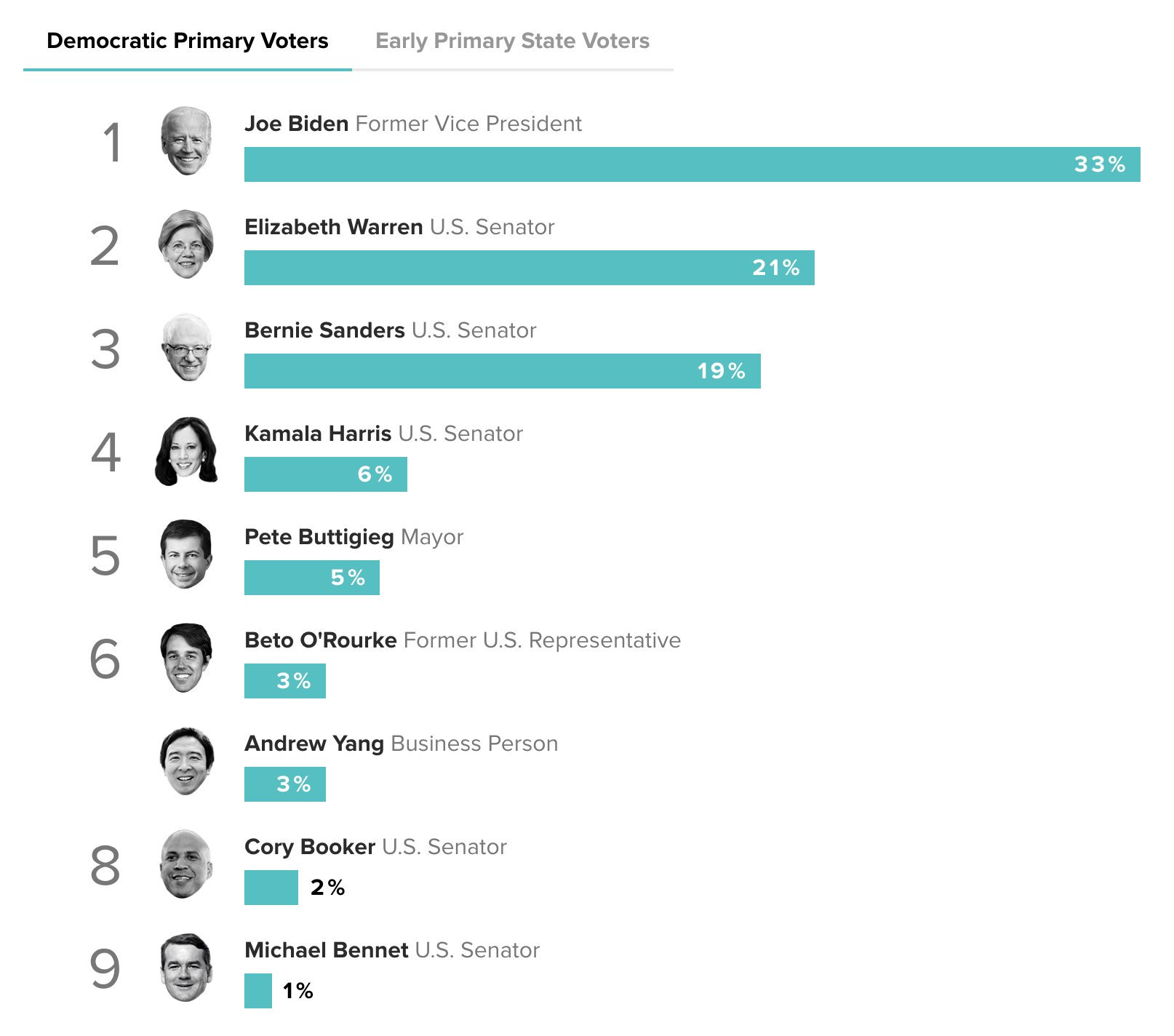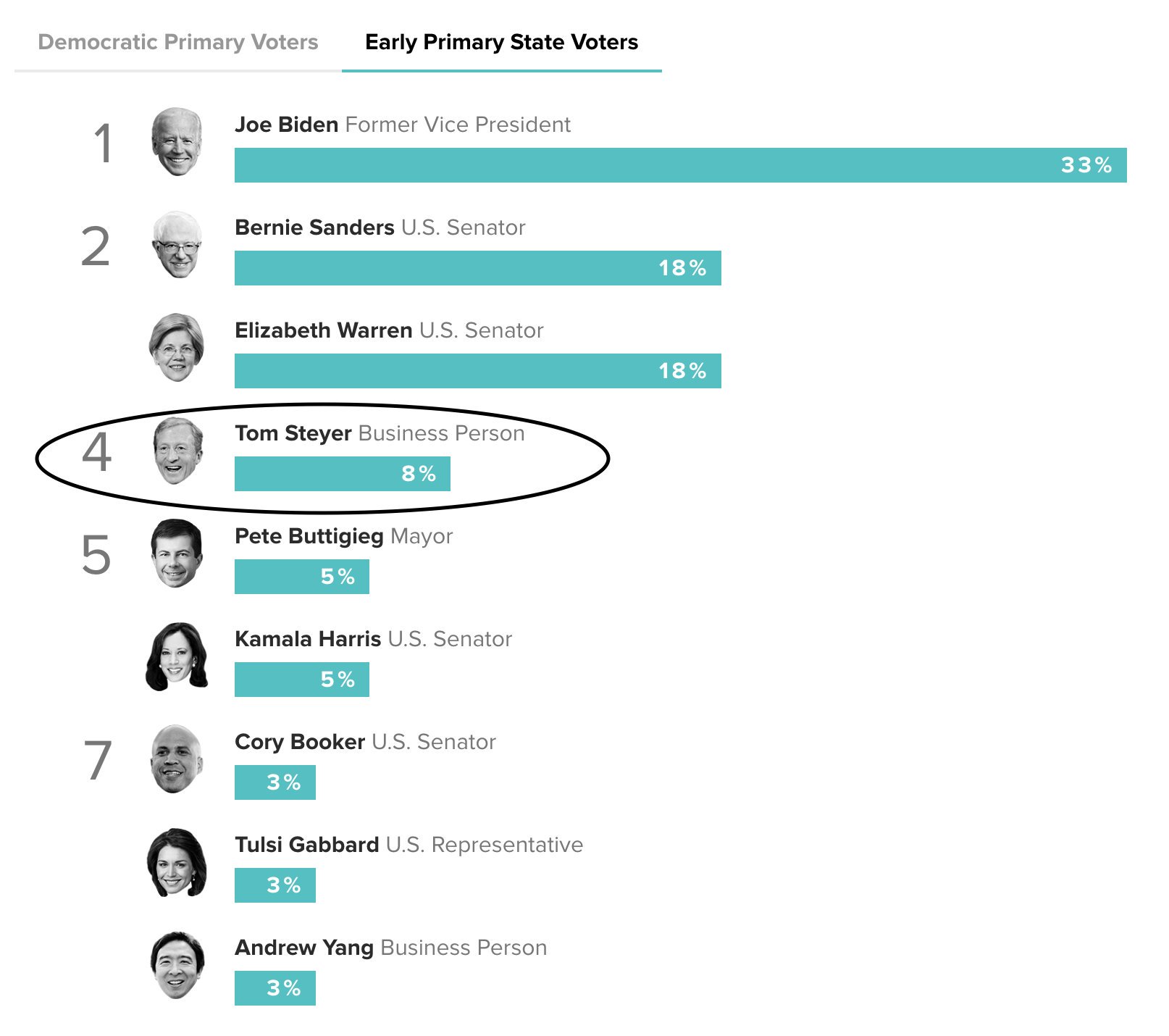Epistemic status: speculative
Andrew Yang understands AI X-risk. Tom Steyer has spent $7 million on adds in early primary states, and it has had a big effect:


If a candidate gets more than 15% of the vote in Iowa (in any given caucus), they get delegates. Doing that consistently in many caucuses would be an important milestone for outsider-candidates. And I'm probably biased because I think many of his policies are correct, but I think that if Andrew Yang just becomes mainstream, and accepted by some "sensible people" after some early primaries, there's a decent chance he would win the primary. (And I think he has at least a 50% chance of beating Trump). It also seems surprisingly easy to have an outsize influence in the money-in-politics landscape. Peter Thiel's early investment in Trump looks brilliant today (at accomplishing the terrible goal of installing a protectionist).
From an AI policy standpoint, having the leader of the free world on board would be big. This opportunity is potentially one that makes AI policy money constrained rather than talent constrained for the moment.

By 'polarized partisan issue' do you merely mean that people have very different opinions and settle into different camps and make it hard for rational dialogue across the gap? That comes about naturally in the process of intellectual change, it has already happened with AI risk, and I'm not sure that a political push will worsen it (as the existing camps are not necessarily coequal with the political parties).
I was referring to the possibility that, for instance, Dems and the GOP take opposing party lines on the subject and fight over it. Which definitely isn't happening.